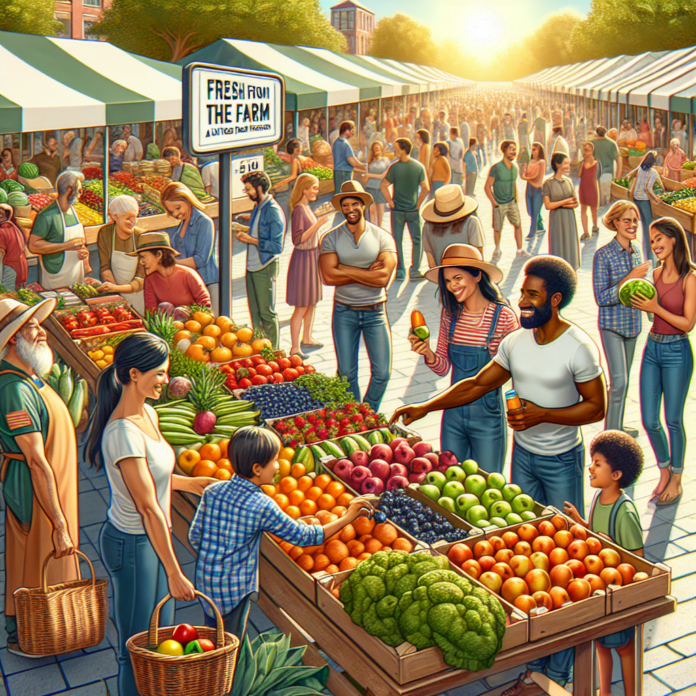Introduction
Fresh food markets have been on a steady rise over the past decade. With growing awareness about health and sustainability, more and more consumers are turning towards these markets for their grocery needs. These local food markets, popularly known as farmer’s markets, provide a platform for local farmers and growers to sell their products directly to consumers, leading to a win-win scenario for both parties. This article aims to guide you through the world of fresh food markets, helping you understand their benefits, how to shop at these markets, and much more
Benefits of Shopping at Local Food Markets
Shopping at local food markets comes with a host of benefits:
Fresher, Healthier Produce
Produce sold in local food markets is fresh, often picked the same morning. Because these items do not have to endure long transport, they are less likely to degrade, leading to better taste and nutrition.
Sustainable Practices
Buying from these markets helps reduce the carbon footprint associated with food transportation. Furthermore, many local farmers use organic or sustainable farming methods, making it a greener choice for consumers.
Economic Benefits
When you shop at local food markets, you’re supporting local businesses and the local economy. The money you spend goes directly to the farmer, aiding in their livelihood.
Social Interaction
Local food markets provide an outing where you can interact with community, meet the growers, and ask them about their farming practices. It’s a great way to connect with your community and learn about where your food comes from.
How to Shop at Local Food Markets
Here are some tips to get the most out of your shopping experience:
- Bring Your Own Bag – Local food markets often encourage sustainability. Help reduce waste by bringing your own reusable bags.
- Go Early or Late – The best produce is often available early. Alternatively, going late might get you better deals as sellers might be eager to sell their remaining stock.
- Ask Questions – Don’t shy away from speaking with growers. Ask them about their farming practices, the best way to store and eat their produce, or even for recipe tips.
- Experiment – Try out new fruits, vegetables, or other products you haven’t heard of. It is one of the pleasures of shopping at these markets.
Conclusion
Moving beyond the convenience of supermarkets and embracing local food markets can bring rich rewards. The freshness of the food, supporting local agriculture, the environmentally friendly practices, and the sense of community are all compelling reasons to make these markets a regular part of your shopping routine. By becoming aware of local produce and developing relationships with the people who grow our food, we become more connected with our food system, and it’s a connection that nurtures us just as much as the food itself.
Frequently Asked Questions
Q: Are products at local food markets more expensive than supermarkets?
A: While prices can vary, remember that you’re often getting fresher, higher quality produce, directly from the grower. Some products might cost a bit more, others may be cheaper, especially if they are in season.
Q: How can I find a local food market near me?
A: Many cities have websites or resources dedicated to providing information on local food markets. An internet search with your city’s name and “farmers market” should provide you with useful information. Alternatively, you can enquire within your community.
Q: What should I do if I have dietary restrictions?
A: Local food markets often offer a variety of produce. If you have dietary restrictions, you can often find products to suit your needs. You can speak to the sellers about your requirements, as they might be able to guide you.
Q: Where does the produce come from?
A: The produce sold at local food markets is usually sourced from local farmers within the immediate geographic region. This ensures that the products you buy are fresh.

